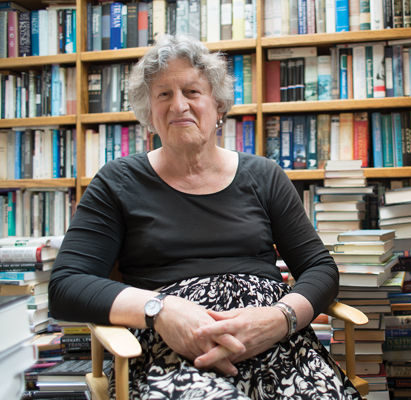A. Doak Barnett
The China Studies Program was founded in 1982 by Doak Barnett, who was named the George and Sadie Hyman Professor of Chinese Studies that same year.
Doak was born in Shanghai where his parents worked at the Chinese National YMCA. He graduated summa cum laude from Yale University in 1942, with a degree in international relations. Following his service as a Marine in the Second World War, he earned an M.A. degree in international relations at Yale and a certificate from the Yale Institute of Far Eastern Languages in 1947. He spent the next few years working as a journalist, traveling all over the country, even witnessing the People’s Liberation Army entering Beijing (then Beiping) in 1949.
In 1950-51, Doak served as a public affairs officer in the American Consulate in Hong Kong, and beginning in 1952, he spent four years as an associate of the American Universities Field Staff in Hong Kong. Doak eventually became program director for the Ford Foundation in Hong Kong in the late 1950s and channeled substantial funds to research projects on China at a time when many foundations did not support them because of the hostile politics of the McCarthy era.
He joined the faculty at Columbia University in 1961, where he trained future China scholars Kenneth Lieberthal and Michel Oksenberg, among others. In 1965, as a principal witness for an extensive Congressional review of China policy conducted by Senator J. William Fulbright, chairman of the Senate Foreign Relations Committee, and subsequently lobbied Congress and American presidents to end China’s isolation. In 1969, Barnett moved to the School of Advanced International Studies (SAIS) at the Johns Hopkins University, where he remained until he retired in 1989.
Doak seamlessly married policy analysis with scholarship with a bibliography remarkable in bot breadth and depth. His magisterial Cadres, Bureaucracy, and Political Power in Communist China (New York, Columbia University Press, 1967), with an introduction by Ezra Vogel launched the subfield of Chinese bureaucratic politics in China that continues to be the dominant strand of intellectual DNA in the SAIS China Studies Program and the SAIS China Global Research Center.




